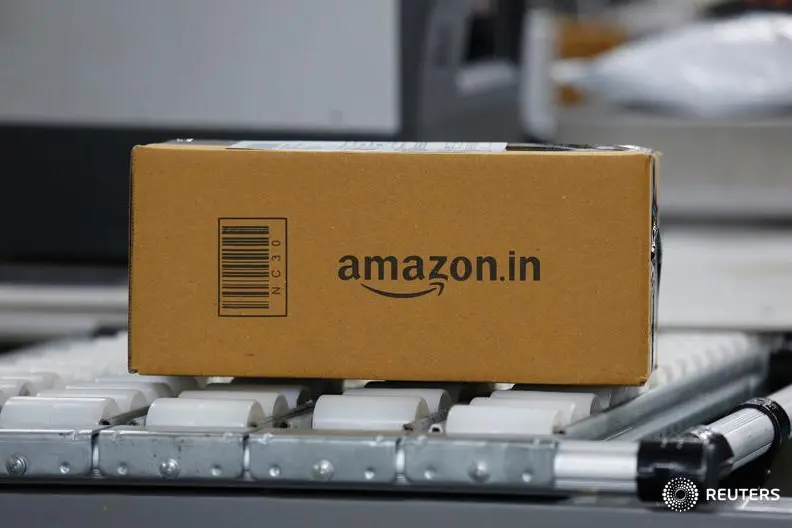PHOTO
The biggest threat to local insurance firms may not come from local competitors, but from tech giants such as Amazon moving into the space, an analyst has told Zawya.
Speaking on the sidelines of a conference organised by the United Arab Emirates Insurance Authority in Abu Dhabi on the future of the insurance sector, Muhammad Asad Irshad, a principal at consultancy firm Milliman, said: “Amazon is the biggest threat to insurance. They are already trying to get a license in India for life, health and motor."
Talking in his personal capacity and not on behalf of his company, Irshad added: "Currently, they have a partnership to sell insurance when you buy a product from them.”
Irshad said that he believes Amazon will be a player in the insurance market in five years. The company, which is already the world’s biggest online retailer, recorded $56.6 billion revenue in the third quarter of the year, and made its move into the UAE last year through its landmark acquisition of local online marketplace firm Souq.com.
Irshad said that the data big companies possess, especially Amazon, will have a major role in disrupting the global insurance market.
“They are thinking about different ways… I don’t think they will actually own an insurance company. I think they will become the marketplace for insurance. Five years from now, you will probably see Amazon all over insurance I guess.”
Amazon has already applied for a licence in the United Kingdom to run a price comparison site for insurance products, Reuters reported in August.
However, Irshad said that insurance companies will still need to exist to handle accidents, floods and other similar events.
Asked what is missing for better or more tech integration in the insurance sector, Irsahd said: “Regulations”.
“Someone has to sit and come up with things like: ‘Who owns the data? Who gets the data? Who captures the data? who uses it and how do they use it?’.
He said it was important to regulate this “so that insurance companies have a framework that they can work with to innovate”.
Irshad said technology such as telematics, where insurers place a box in a car capturing data that can analyse driving habits and accidents could save insurance companies the time and money they exert to get a police report about incidents.
Asked what is missing in the UAE and Saudi Arabia, which are the two biggest insurance markets in the Gulf Cooperation Council, the leading insurance analyst said: “What is getting better but is still missing is risk-embedded culture. What I have seen here is insurance companies work as brokers most of the time. Insurance companies don’t understand the risk, so the problem is if I am in a business of writing risk and I don’t understand risk that is fundamentally a flawed business plan.”
He added: “Insurance companies need to understand risk more. The capital in this part of the world has to be risk-based. The UAE has improved, Saudi has improved but there is still a long way to go and that is where regulators need to step in to make sure that risk culture is embedded more within the companies. Once that happens then you will be able to make the right decisions and grow the company,” he added.
The UAE, which is the biggest insurance market in the GCC, reported 44.8 billion dirhams ($12.2 billion) in Gross Written Premiums (GWPs) last year. GWPs refer to the total revenues insurers receive from clients for the insurance contracts they provide.
Ebrahim Alzaabi, the director general of the UAE’s Insurance Authority, told reporters earlier in a press conference on the sidelines of the insurance event that the GWPs are expected to rise by 10 percent this year, adding that there could be a merger between two insurance companies soon.
“Two companies are supposed to be involved in an acquisition deal this year,” Alzaabi said without elaborating. Alzaabi told Zawya in a previous interview last year that the number of insurance companies and brokerages in the UAE could be considered as disproportionate with the volume of the market, encouraging insurance companies and brokers to consider mergers.
Further reading:
- Takaful Emarat rebrand will make direct sales easier, says CEO
- INTERVIEW: UAE insurtech start-up Aqeed makes splash with advertising blitz
- Insurance needs to embrace tech or be left behind, says Lloyds head
- INTERVIEW: Takaful Emarat looks to data as a differentiator
- Saudi regulator warns 14 insurance firms that licences could be withdrawn
(Reporting by Yasmine Saleh; Editing by Michael Fahy)
(yasmine.saleth@refinitiv.com)
© ZAWYA 2018





















